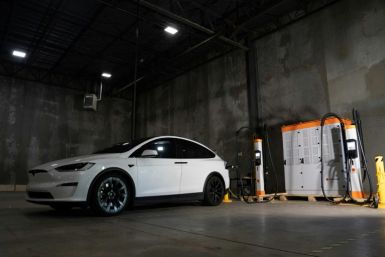Enterprise Partners to buy Teppco for $3.3 billion
Enterprise Products Partners LP
The transaction, which requires the approval of Teppco unit-holders as well as regulatory clearance, is expected to close sometime in the fourth quarter, Enterprise said.
The announcement of the deal, which will form a 48,000-mile network of pipelines transporting crude, refined products and natural gas, sent Teppco units up 5 percent to close at $30.12 on the New York Stock Exchange. Enterprise Products slipped 1.3 percent to $24.96.
Both companies are master limited partnerships run by general partners owned by the same entity, Enterprise GP Holdings LP
Analysts said the merger is a step toward Duncan consolidating control over existing North American oil and gas pipeline networks.
This reflects the growing importance of the oil and gas transportation industry, said Antoine Halff, vice president of research for the Newedge Group. Oil and gas transport are increasingly linked to each other.
Not just because some consumers are switching from oil to gas, but also because the oil industry itself has become a very large natural gas and natural gas liquids consumer.
Under an exchange of units, Enterprise will pay the equivalent of $31.36 per unit of Teppco, a premium of 9.3 percent over Friday's closing price. In April, Teppco had rejected a proposed $2.75 billion takeover offer from Enterprise.
Unit holders of Teppco will receive 1.24 Enterprise common units for each of their units.
It will become the largest partnership and with that it increases its scale of opportunities and will have a lower cost of capital, said analyst Ralph Pellechia with Fitch Ratings.
The new partnership would transport a full range of products including oil. It will gain storage capacity, which has been profitable because of a contango in oil markets, he said. Even when storage isn't as profitable, the partnership will own pipelines to transport the crude.
William Eddleman, of Argus Research in Houston, said there was a 90-percent chance of the deal going through. The only thing that might stand in the way ... is if the Department of Justice decides to look at it for antitrust issues.
It really becomes a huge consortium. It would probably be bigger than Kinder Morgan
He noted Enterprise is primarily a natural gas and natgas liquids pipeline and storage company so this would expand it into the oil business and into refined chemicals too.
It creates a giant with extensive penetration into the Northeast, Midwest and other regions, he said.
The deal comes as values for the tax-friendly master limited partnerships rebound from a sell-off that saw many of them lose more than half their value last year.
The combined company would hold 48,000 miles of oil and natural gas pipelines; more than 200 million barrels of oil, oil products and natural gas liquids storage; and 27 billion cubic feet of natural gas storage.
The merged company would generate cost savings of at least $20 million and be accretive in 2010, Enterprise Chief Executive Officer Michael Creel said in a statement.
Master limited partnerships are a favored structure in the energy industry for many fee-based assets, such as pipelines and storage tanks. The partnerships do not pay corporate taxes and distribute nearly all their profits to their unit holders.
The banks that advised the main parties in the merger deal include Barclays Capital, Credit Suisse and Morgan Stanley. Barclays advised Enterprise.
(Additional reporting by Matt Daily and Bruce Nichols; Editing by Lisa Von Ahn, Phil Berlowitz, Tim Dobbyn)
© Copyright Thomson Reuters 2024. All rights reserved.











